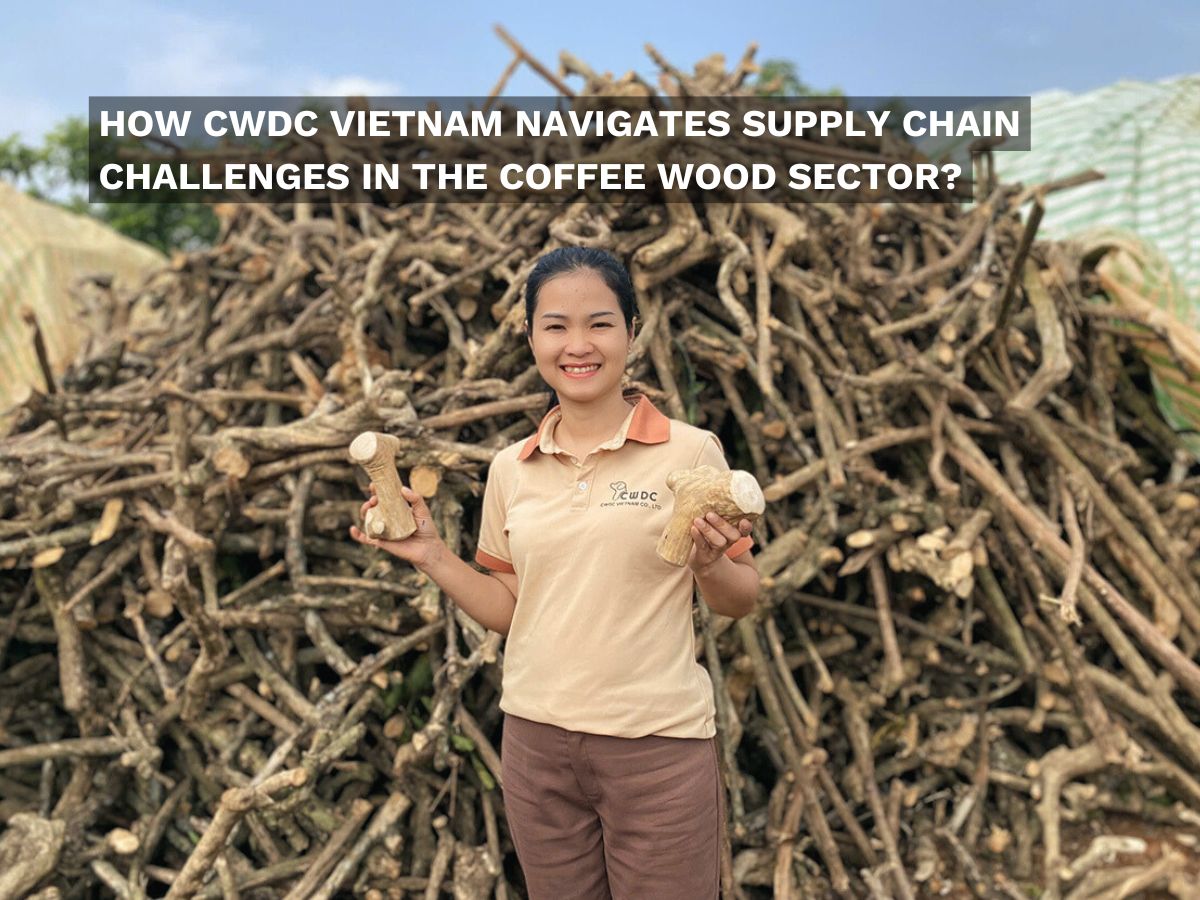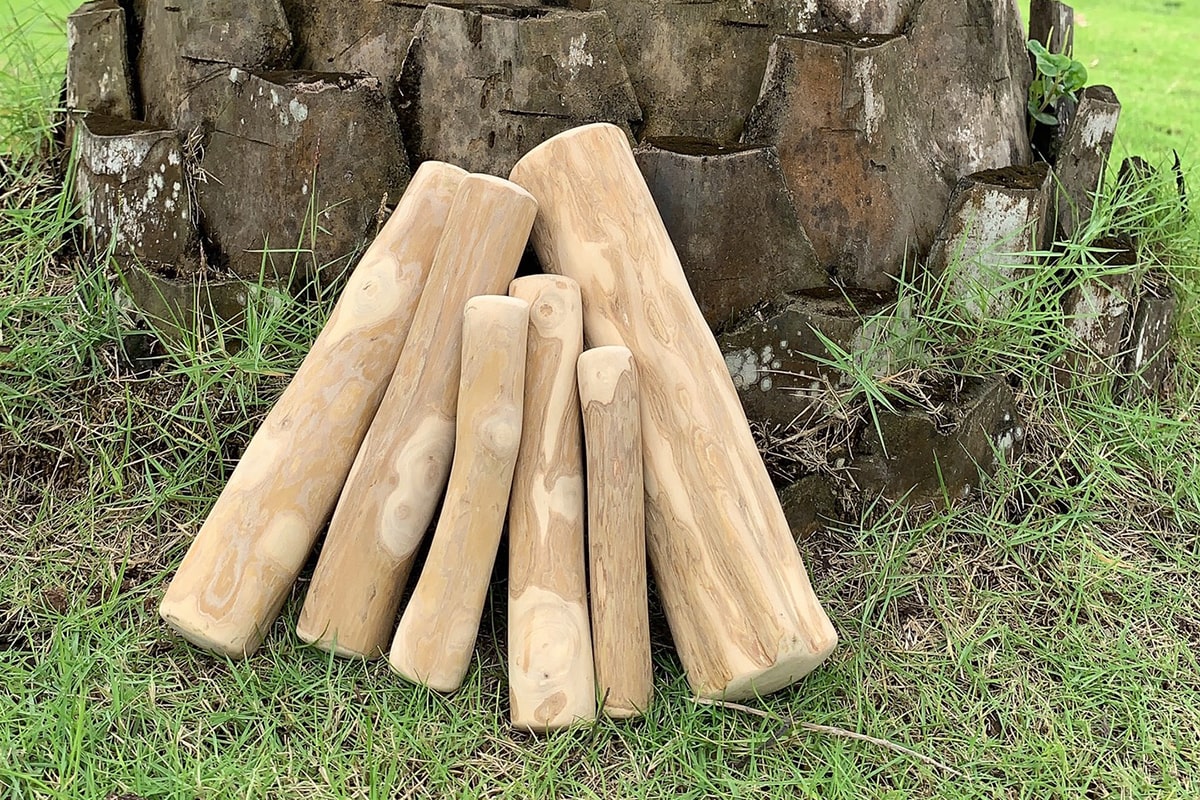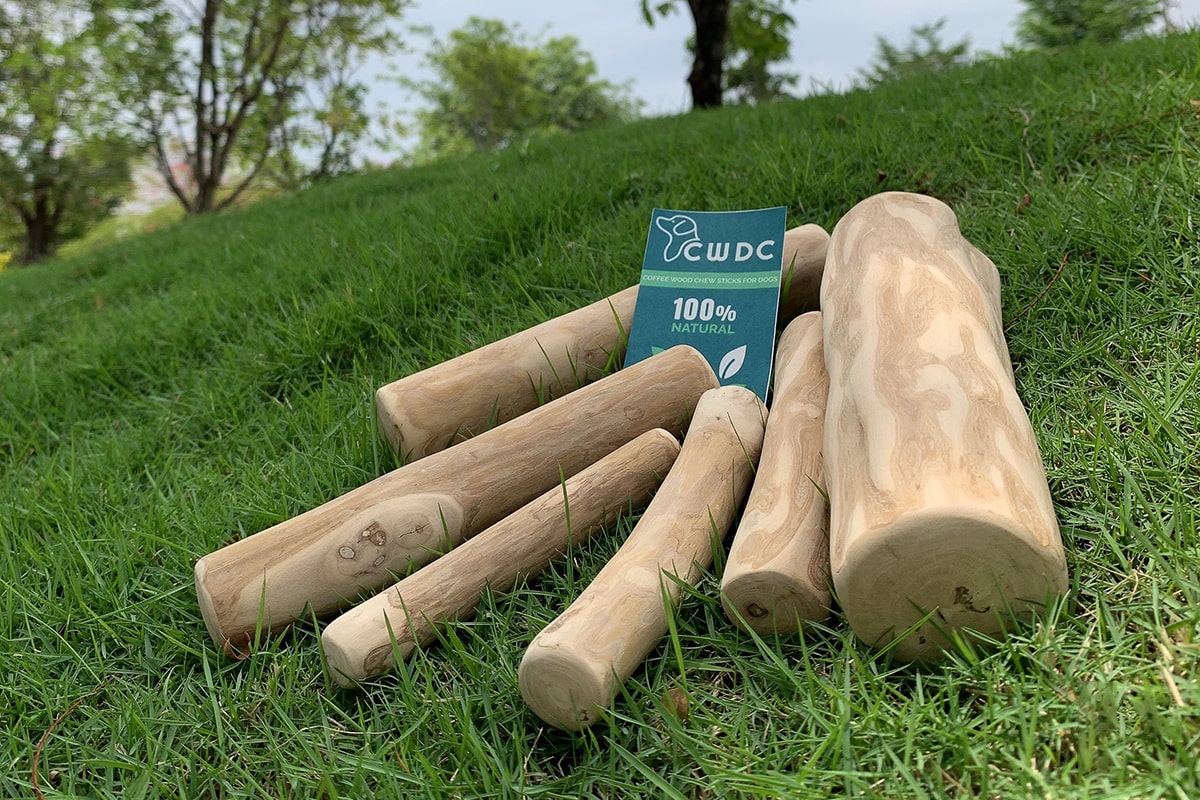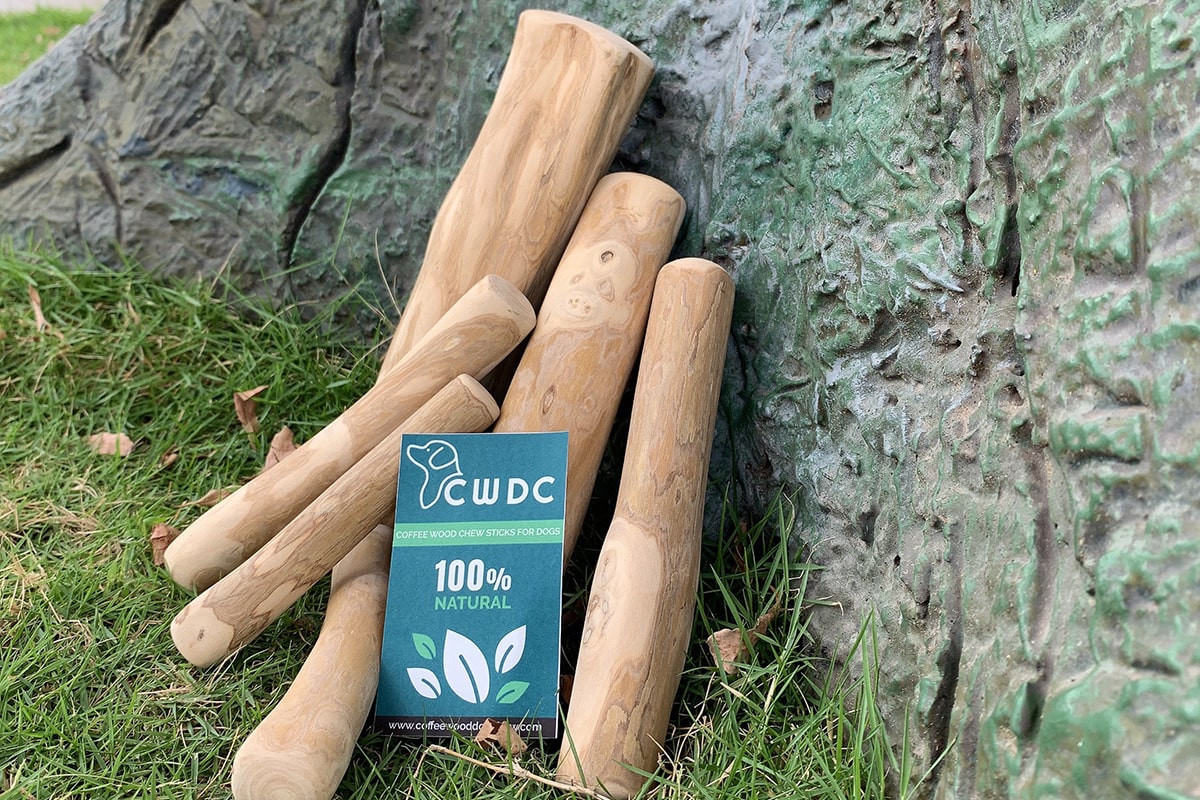The coffee wood sector, particularly the niche of coffee wood dog chews, is uniquely challenging. Unlike traditional timber industries with year-round raw material access and well-established global networks, the coffee wood supply chain is seasonal, localized, and fragmented.
For CWDC Vietnam, a key player in this sector, navigating these supply chain complexities requires foresight, adaptability, and close cooperation with coffee-growing communities. Through strategic planning, ethical sourcing, and vertical integration, CWDC Vietnam has developed a resilient supply chain model that ensures continuity, quality, and sustainability in a highly volatile environment.
1. Seasonal Supply of Aged Coffee Wood
One of the primary challenges in the coffee wood sector is the seasonal availability of raw materials. Coffee trees are typically removed between November and March, when farmers replant old, unproductive trees.
This short window limits the volume of coffee wood that can be harvested each year, making advance planning and swift mobilization essential. CWDC Vietnam addresses this by working with a pre-identified network of coffee farms and cooperatives.
Prior to harvest season, our company surveys supply zones, confirms harvest intentions, and arranges logistics in advance to secure the needed volume of aged coffee wood before the season ends.
2. Logistics and Access in Remote Areas
Most of CWDC Vietnam’s raw materials come from remote, mountainous regions in the Central Highlands, where transportation infrastructure is often limited or underdeveloped.
Road conditions can be challenging, especially during the rainy season, and hauling bulky coffee wood over long distances adds to transportation costs and delays.
To overcome this, CWDC Vietnam invests in local collection points and temporary storage facilities within or near harvesting regions. This localized model minimizes long-distance transport at early stages and allows for batch consolidation before sending wood to the main processing site, reducing both costs and risk of spoilage.
3. Dependence on Ethnic Minority Labor and Landowners
CWDC Vietnam sources most of its raw material from farms managed by ethnic minority communities. Navigating cultural differences, language barriers requires trust, relationship-building, and long-term commitment.
CWDC Vietnam addresses this by maintaining direct relationships with farmers and partnering with local leaders and cooperatives to ensure fair practices and transparency.
By offering training, prompt payment, and ongoing dialogue, CWDC Vietnam builds mutually beneficial relationships that result in reliable supply and stronger social impact.
4. Maintaining Product Quality from Farm to Factory
Unlike some industries where raw material can be homogenized or chemically treated, coffee wood chews must maintain natural integrity, consistency, and safety.
Poorly wood or improper cutting can result in entire batches being rejected, especially for export to regulated markets like the EU or the U.S.
CWDC Vietnam has introduced quality checkpoints throughout the supply chain, from initial inspection during sourcing, to rigorous quality control at the central factory.
Employees receive specialized training to handle wood safely, and CWDC Vietnam uses custom equipment to standardize cuts, and eliminate contaminants.
5. Coping with Market Volatility and Hoarding
Because coffee wood has become increasingly valuable, especially in the pet industry, the sector has seen price speculation, hoarding of raw materials, and attempts at monopolization.
Some middlemen buy up large volumes of wood, causing artificial shortages and price hikes. CWDC Vietnam mitigates this by sourcing directly from farmers, bypassing speculators, and offering pre-agreed prices that reflect fair market value.
This strategy helps stabilize supply and builds long-term loyalty with suppliers. Our company also maintains a reserve inventory of processed wood, allowing us to buffer short-term fluctuations and fulfill export orders without disruption.
6. Export Compliance and International Shipping
Shipping processed dog chews to global markets involves compliance with strict phytosanitary, packaging, and labeling regulations. Any disruption in documentation, inspection, or customs clearance can delay orders or result in shipment rejections.
CWDC Vietnam ensures compliance by maintaining an in-house export documentation team, working closely with logistics providers, and adhering to destination-specific standards.
Our company also tracks international regulatory changes, such as updates in EU pet product safety standards, to ensure that its production remains compliant and competitive.
7. Adapting to Climate and Environmental Pressures
Climate change is increasingly affecting coffee farming in Vietnam, leading to unpredictable rainfall patterns, pest outbreaks, and soil degradation, all of which can impact both coffee yields and the supply of aged trees.
CWDC Vietnam works with farmers to promote sustainable land use and encourages the adoption of rotational replanting schedules that protect long-term productivity.
By aligning sourcing with environmentally sound practices, the company ensures a more resilient and renewable supply base.
8. Investing in Vertical Integration and Process Control
To gain greater control over the supply chain and reduce dependency on third parties, CWDC Vietnam has invested in vertical integration.
This includes:
- Direct sourcing and relationship management with farmers
- Owning and operating processing facilities
- Internal logistics coordination
- Quality assurance and packaging
- Export documentation and shipping
This end-to-end model enables CWDC Vietnam to respond quickly to disruptions, maintain consistent product standards, and capture more value across the supply chain.
9. Leveraging Technology for Forecasting and Traceability
To improve supply chain visibility, CWDC Vietnam is incorporating digital tools for inventory management, supplier tracking, and demand forecasting.
By analyzing past harvest volumes, market trends, and customer demand, our company can better align sourcing volumes with future production needs.
CWDC Vietnam is also exploring traceability initiatives, which allow international buyers to see the origin and sustainability status of each batch, an increasingly important selling point in ethical consumer markets.
10. Long-Term Supplier Relationships Over Short-Term Gains
Finally, CWDC Vietnam’s strategy is rooted in long-term partnerships, not opportunistic transactions.
The company prioritizes relationship continuity over short-term cost savings, believing that stable, trust-based connections with farmers, workers, and local communities ultimately result in a more dependable and ethical supply chain.
By sharing knowledge, aligning incentives, and treating suppliers as partners, CWDC Vietnam ensures that its supply chain is not only efficient but also socially responsible and resilient.
Conclusion
The coffee wood sector presents unique supply chain challenges, from seasonal raw material limitations to remote logistics, speculative pricing, and international compliance.
CWDC Vietnam navigates these obstacles through a combination of community partnership, vertical integration, local infrastructure investment, and strategic planning.
By blending traditional knowledge with modern logistics and ethical business practices, our company has built a robust supply chain that supports its growth, fulfills global demand, and delivers social and economic value to rural Vietnamese communities.
Our approach demonstrates that resilience in a niche, high-value industry is best achieved through adaptability, transparency, and shared success.
Related Posts:
- The Economic Value of Aged Coffee Wood and Its Rising Demand
- Are coffee wood chews safe for dogs ? A Comprehensive Look
- Coffee Wood Dog Chew - History and Development
- Java (Coffee) Wood Tree Bird Perch / Artificial Java (Coffee) Tree Plant for Home Decor Indoor or Outdoor Office…
- Enhancing Economic Opportunities for Ethnic Minority Workers in the Coffee Wood Industry
- Coffee Wood from Vietnam: The Ideal Material for Dog Chews









